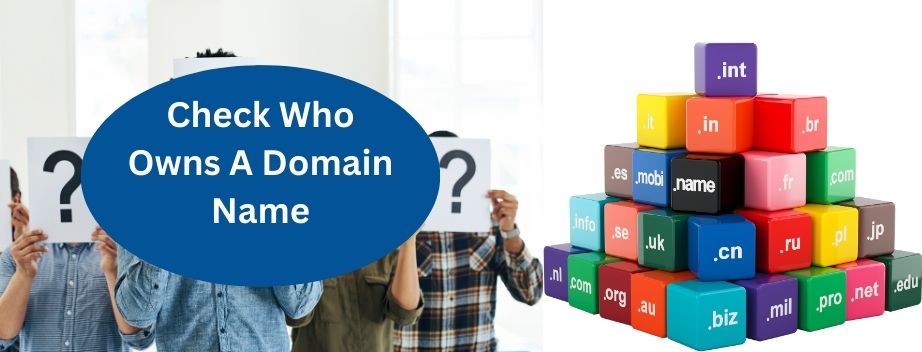
Checking on the ownership of a domain name is highly important in website management for various reasons. Either you're purchasing a domain, analysing your competitors, or ensuring that there won't be any unauthorized online brand security by checking on who owns the domain. This guide will walk you through the effective way of checking who owns a domain name and how various tools like domain WHOIS lookup and domain IP lookup can assist in the process.
Buying a Domain: First of all, a domain name can already be taken. However, knowing who the owner is will open up the room for negotiation.
Protection of Brand: You can prevent people from registering your brand on a domain just to sell it back to you for more money.
Competitor Analysis: One might find other owners of a similar domain name and track his competitors.
Legal or Security Issues: One might suspect fraudulent activities and knowing who owns a suspicious domain name might help in legal processing when the system security is being ensured.
Now, let's discuss how you can quickly trace who owns the domain name and what tools are there.
Using WHOIS lookup is beyond any doubt the most common and reliable way of querying the ownership of a domain. WHOIS is essentially a database compiled usually by domain registrars that contains registration information including owner contact details, such as registration and expiration dates of a domain.
How to Perform a WHOIS Lookup
A user should go to a website that offers WHOIS lookup services, like ICANN WHOIS, or WHOIS.net. One is then necessitated to input the domain name of interest.
The search results will often include information such as:
Name of registrant- owner of the domain
Contact information of registrant- email and phone number
Date of registration and expiration
Name of registrer- the organization for which the domain is registered
It is worth noting, though, that some owners use domain privacy protection that effectively hides the contact information of the owner from public access. In this case, the WHOIS look may pass the information to the registrar or proxy service rather than the actual domain owner.
Top Tools for WHOIS Lookup
It is also one of the most trusted sources of information, managed by Internet Corporation for Assigned Names and Numbers, or ICANN.
Very basic, simple, and works.
Sometimes you will want to dig into the hosting environment of the domain. A very useful set of tools for this purpose is domain IP lookup, and reverse DNS lookup tools.
What is Domain IP Lookup?
A domain IP lookup tests the IP address that a domain name assigns. Each domain goes hand-in-hand with an IP address, which refers to the numeric address of the server where the website has been hosted.
Why Check the IP of a Domain?
Identify Hosting Location: Determination of the hosting location may be assisted through knowledge of the assigned IP.
Performance Monitoring: This will indicate whether the domain is hosted on shared hosting, which will definitely affect the performance of your site.
Security Auditing: If you are trying to investigate some suspicious website, finding the IP address might expose additional information about their network and server environment.
How to Perform a Domain IP Search
You may utilize DNSstuff, WhatIsMyIPAddress, or MXToolbox for the purpose of performing a domain IP search.
You'll have to just type in a domain name, and it shows you what the associated IP is.
Once you have an IP, you can use reverse DNS lookup tools to figure out which domains share the same IP.
Here are some of the most effective domain IP lookup tools:
DNSstuff: It has several DNS and IP tools, with the power of an IP lookup tool.
WhatIsMyIPAddress: A very easy-to-use utility to give a quick IP lookup result.
MXToolbox: This is a very powerful DNS and domain IP lookup service.
If the WHOIS lookup could not give you the owner's contact information because of privacy protection, then another trick is contacting the domain registrar. A domain registrar is a company that registers domain name.
How to Contact a Registrar
For most registrars like GoDaddy, Namecheap, or Bluehost, there are support teams that can help facilitate reaching out to the owner of the domain if privacy protection is enabled.
Some registrars also offer a feature wherein a prospective buyer can send an inquiry directly to the owner of a domain. The inquiry will need to go through the registrar's service.
If you really want a domain but can't identify the owner through public means, a domain brokerage service can be of use. Domain brokers are third parties that can contact owners or otherwise connect buyers with sellers for an often-acceptable commission.
Extra Tips and Tools
Be Closely Aware of Domain Expiration Dates. It would expire domains and you could find a domain that will now come into availability due to the inability of its owner to renew it.
You can check DomainTools for receiving monitoring notifications about expiring domains.
Using an IP Domain Checker for Security Audits
Security audits become quite interesting when doing a domain IP lookup.
For example, a malicious website with many suspicious activities may also be sharing its IP address with other malicious websites. An IP domain checker finds these patterns so that risks can be mitigated beforehand.
How to Verify the Authenticity of a Domain
When buying a domain name, you need to know whether the owner is authentic. Verification is done through integration of tools like domain WHOIS search, domain IP search, and possibly contacting a domain broker or registrar so that you may verify your details using the one provided.
Domain Privacy Protection
Most domain owners use privacy protection services, where this information is not accessible. You will see the details of the registrar in such a case instead of the actual owner's information. Some services offer limited information to be displayed, like some anonymized email addresses that can still be used for indirect contact with the owner.
Stale WHOIS Information
Domain registration details have to be updated from time to time, but in the case of the non-enforcement aspect of it, they might become out of date. If that happens, then it is probably the best course of action to contact the domain registrar.
Multiples Registrars
Transferring between registrars means that changes in the ownership or other information in the WHOIS database might not be updated immediately. Tools such as DomainTools make tracing previous owners and changes possible.
It is really very important to know who owns a particular domain as it can go a long way in buying a domain, protecting one's brand, or carrying out security audits. This can be done by using tools like domain WHOIS lookup and domain IP lookup or by services offered by domain brokers to find the owner of any domain and then take appropriate measures, either purchasing it or defending one's interest.
Q1-How do I find out who owns a domain name?
Ans-You can check who owns a domain name using a domain WHOIS lookup tool, which comes back with domain registrant information, such as contact information and when it was registered.
Q2-What is WHOIS lookup? How does WHOIS lookup work?
Ans-A WHOIS lookup is a search tool that details the ownership of the domain, its registration dates, and who the registrar is. You can input a domain name to see who is registered unless privacy protection has been enabled.
Q3-Can I check the IP address of a domain?
Ans-Yes, using the domain IP lookup tool, you find out the IP address associated with a domain. It will help you detect where the domain is hosted and could be used for security checks.
Q4-What if the domain owner uses privacy protection?
Ans-When you are conducting the WHOIS lookup on the domain, it may likely to include showing of a contact form either to the registrar's contact, or an address by the proxy service instead of showing the true details of the owner.
Q5-How would I contact a domain owner if the information was private?
Ans-You can contact the registrar of the domain. Though the owner's details might be protected, the registrar may offer a service to send a message to the owner on behalf.
 Kanhu Charan Behera
Kanhu Charan Behera
Copyright @2020. All Rights Reserved by WEB DIGITAL MANTRA IT SERVICES PVT LTD
Post Reviews